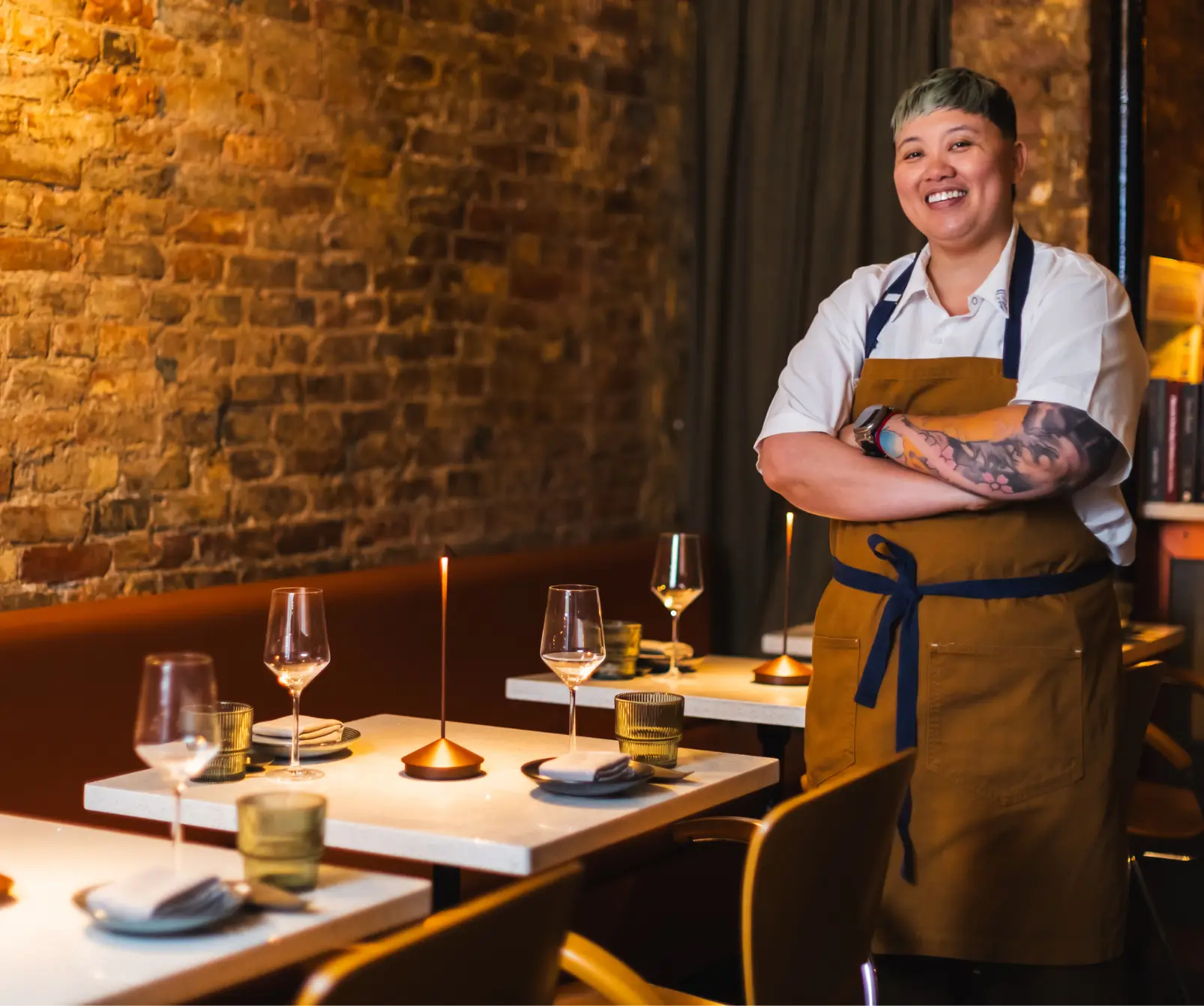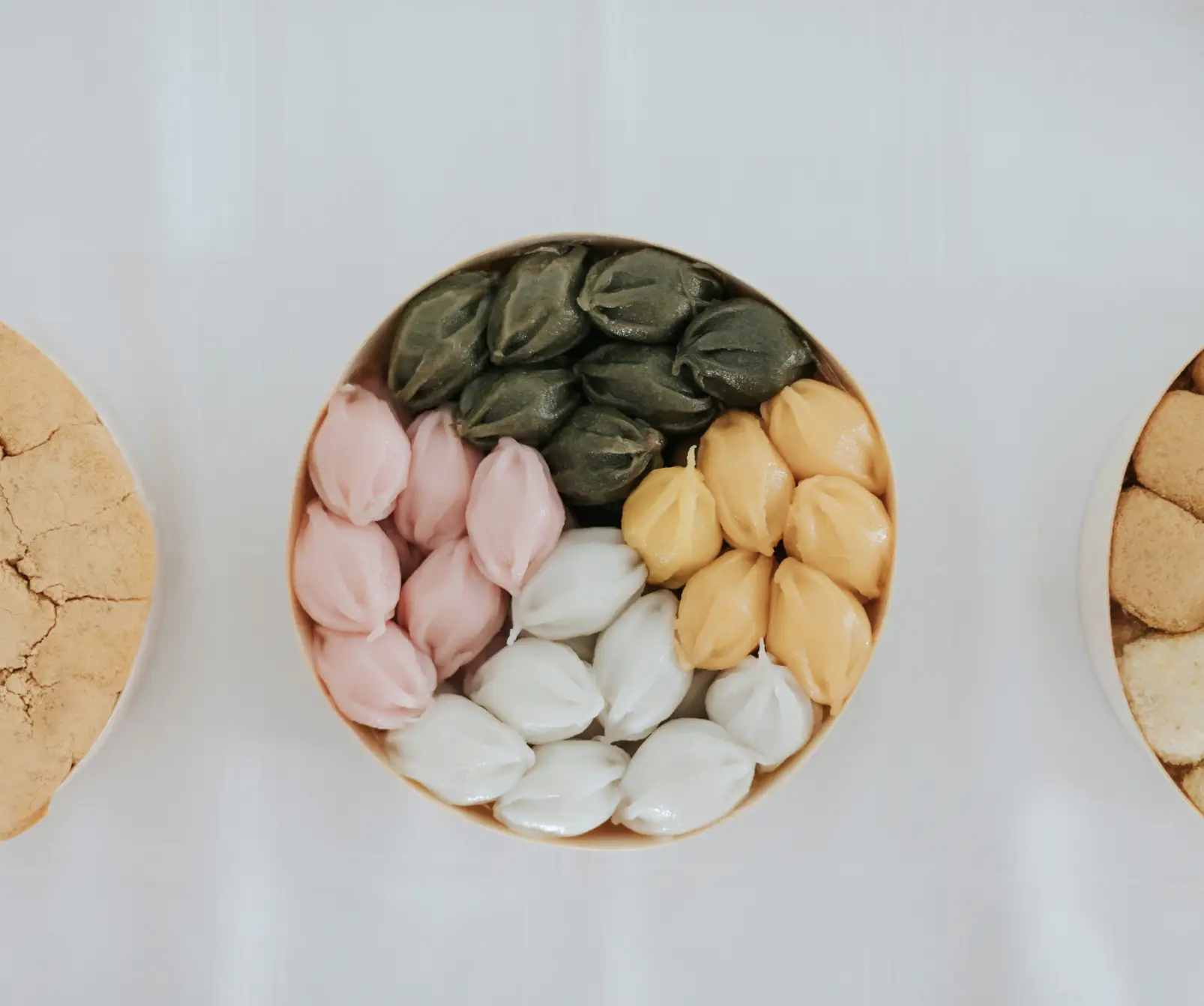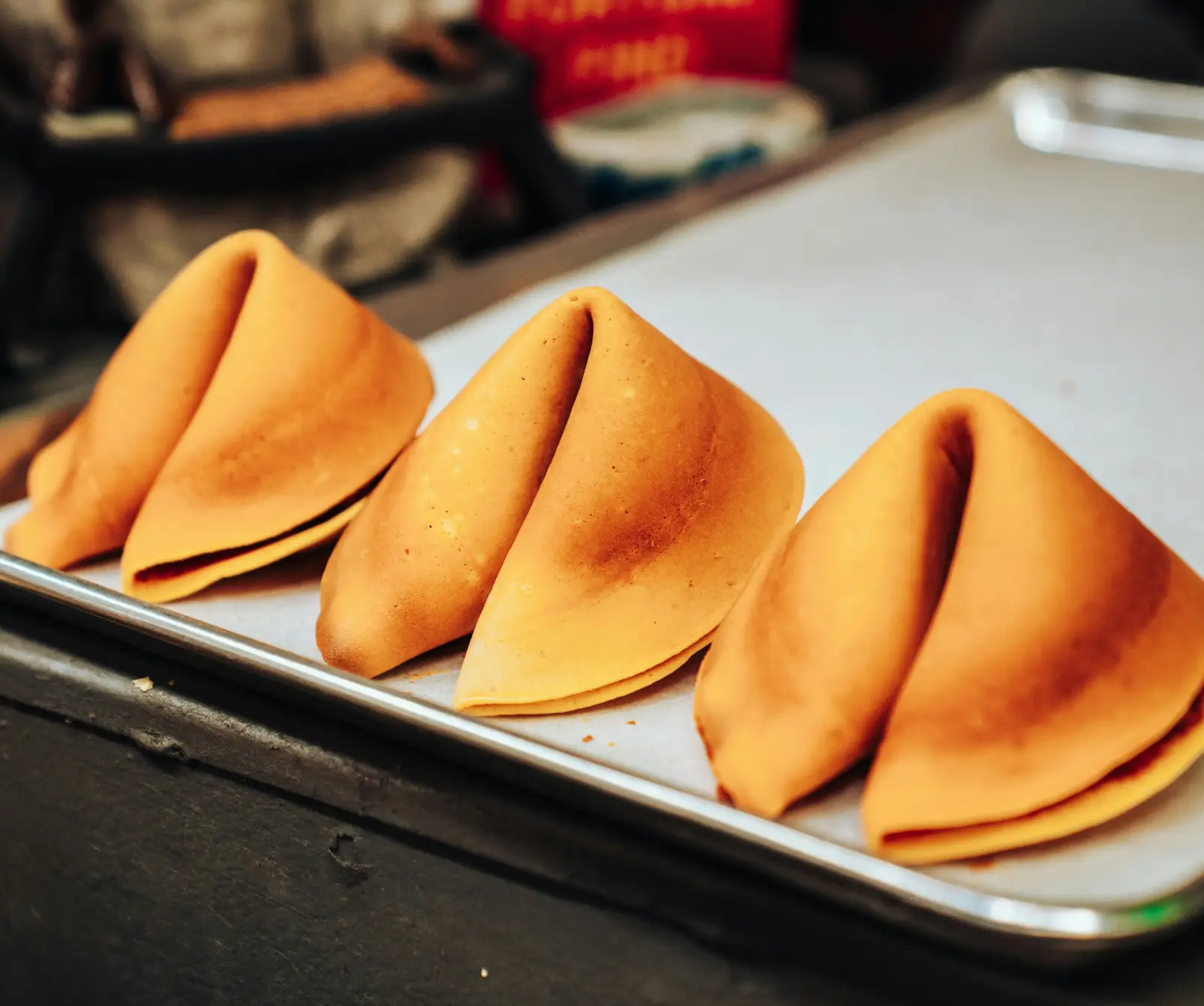Throughout her 21-year career in the culinary industry, Chef Frances Tariga has served dignitaries, participated in televised food competitions, and worked in numerous renowned restaurants in Manhattan. Her hunger for success has led her to face many challenges that helped her grow as a person.
“When I was on Top Chef, I was like, ‘I’m going to be famous.’ [But] it doesn’t work like that. You have to back it up, which was a hard lesson,” Tariga admits.
Now as a mentor for younger chefs, she puts emphasis on how important it is to work hard and learn something from every experience, despite how good or bad it may seem.
Tariga is quick to point out that sometimes she cannot believe how drastically different her career is compared to ten or even twenty years ago. She often tells chefs who are unsure of their journey, “Sometimes you’re going to be successful, sometimes not. But it doesn’t mean that [it’s] going to be you forever.”
During her time working with Catch, the owner told Tariga: “You can be the best or the most talented chef, but if you don’t work on yourself, you’re not going to get anywhere.”
She credits Catch with introducing her to life coaching, which she attributes to a lot of her personal growth outside of the kitchen. Being authentic, honest, and vulnerable is very important to Tariga now, as it has allowed her to feel more at ease with her true self.

From Manila To Manhattan
Tariga’s early life was not easy. She was raised in Sampaloc, Manila in the Philippines, which is often referred to as a ‘squatters area’. The local children often busy themselves during their summer vacation to make money. Like her peers, Tariga would make and sell simple rice-based desserts in the streets.
However, her talent for cooking did not click for her until she was in college. Tariga admits that she was very rebellious in her youth and often at odds with her family due to her sexuality. She recalled a specific time she had run off to Baguio and wowed her companions with her cooking. Her friends insisted that Tariga should consider going to culinary school, which stuck with her.
Soon enough, she began attending the Center for Asian Culinary Studies in San Juan, Manila. About a year after she graduated, Tariga would travel to Dubai, where she quickly found a job as a prep cook despite being on a tourist visa. Before she knew it, she would be working as a private chef to the princess and subsequently became the executive chef at an esteemed ladies club in Abu Dhabi.
Her serendipity knew no end. Tariga heard about a job opportunity as a private chef for the United Arab Emirates’ Royal Ambassador to the United Nations in New York City, which she initially believed was a scam.
“My dad always tells us, ‘If you don’t have anything to lose, you gotta gamble. Otherwise, you’re going to be stuck.’” Tariga said, before playfully adding that ‘Filipinos love to gamble.’
After a successful tasting, she accepted the job and moved to New York in April 2011.

Her Methodology
Between her many TV appearances and theatrical plating style, there is no denying that Tariga loves to put on a good show.
“I remember when I was playing pool, the first thing I learned was: how do I look cool…not the way you shoot it,” Tariga said with a laugh.
Traces of her long culinary career can be found in every dish she cooks. For example, at her popular vegan sushi spot called Dahon Vegan, she serves carrot ‘lox’ topped crispy rice and watermelon tartare rolls. These crafty creations easily tie back to her time as a culinary consultant at Planta (a vegan restaurant group), years working back of the house at several Japanese spots around NYC, and her title as a Sushi Master.
Tariga’s love for cooking has deepened since opening her own restaurants. She says that ordering Filipino take-out frustrates her, as she insists that nothing she has tried lived up to her father’s caldareta, a rich stew typically made with beef or goat, or her grandmother’s pinakbet, a mixed vegetable dish flavored with bagoong (fermented shrimp paste).
While recounting her past with her father, Tariga revealed that even though her relationship with him had long been turbulent, she has learned to forgive him. Her father struggled with addiction for a long time, which Tariga likened to an insurmountable challenge for people living in poverty in the Philippines. As she continues to cook all the best recipes from her youth, her memory of him grows more positive. Nowadays, Tariga more readily recalls fond memories of her father’s cooking, particularly the laborious preparation of karekare that would take him over half a day to prepare.

Tadhana: A Love Letter to Filipinos
In Tagalog, tadhana directly translates to “destiny” or “fate”, but to Tariga, Tadhana is “an ode to chance”.
While growing up in the Philippines, Tariga said there was this idea that only nurses would be able to ‘make it’ in America. This misconception fueled her to work harder and eventually open her restaurant where every member of the staff was born in the Philippines. Tariga notes that her menu has been criticized by some Filipinos back in the motherland, despite Tadhana’s success among NYC foodies. At this point, the criticism barely gets to her anymore, as she is too busy figuring out the details of the next menu update or the future of the restaurant.
“I think if you really want your business to succeed, you gotta set everyone up for success,” said Tariga. She explained that she put special care into everything from how she mentors the chefs working for her to the branding of the restaurant. There is so much intention behind every decision made.
Tariga takes great pride in the aesthetics of her tasting menu, sparing no expense when it comes to eye-catching presentation and artisanal ingredients. Her opening bite, which is brought to the table in a carved-out book, perfectly exemplifies this. This unique plating is something she admits to keeping in her back pocket till the opportunity to tell her own story.
With a menu packed with so many classics, it is hard for her to pick a favorite. However, the one-bite halo-halo that she created using liquid nitrogen is easily up there for her. According to Tariga, she had always wanted to use liquid nitrogen in cooking, but never really had the opportunity until Tadhana. The entire tasting menu is full of diverse, modern fine dining techniques that are a sight to behold.
She admits that the current location feels too small for her growing vision and that moving to a new space would enable her to introduce different menu items and even wine pairings. Currently, Tariga is funneling all of her focus into pushing Filipino food forward. As of October 2024, Tadhana stands as the only Filipino restaurant in NYC to be featured on the Michelin Guide, a feat for a restaurant that opened only five months prior.







